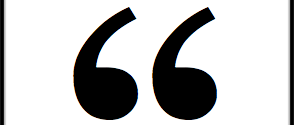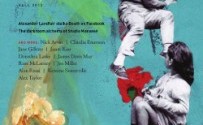Everybody is very enamored by Google’s self-driving cars, you know, Google making glasses. That’s all jazz hands. It’s a big, huge distraction. They’re an advertising network. They’re putting a 25 to 50 percent advertising tax on everything created in the world. That’s all their doing. It’s a huge ad network. They’re going to subsume all advertising into their network.
And that’s what Facebook is building. That’s why Sheryl Sandberg, who was at Google and helped build that advertising business, was brought into Facebook by Zuckerberg. It’s to re-create that playbook. They’re all huge advertising marketing firms. All they’re doing is collecting data and then selling it, and they have an interface that’s wildly efficient, wildly efficient — unprecedented in its efficientness. …
— Insightful interview with Jason Calicanis on the digital landscape for brands touches on content marketing, advertising networks, the role of data, and the importance of social media profiles. Read the whole interview on PBS Frontline.

